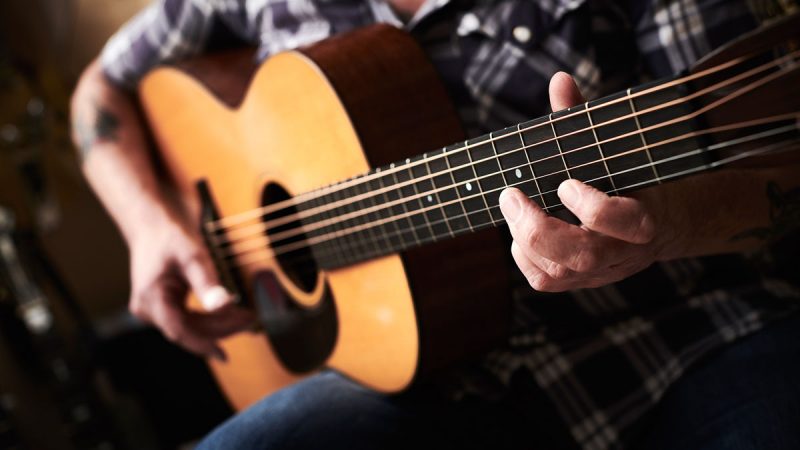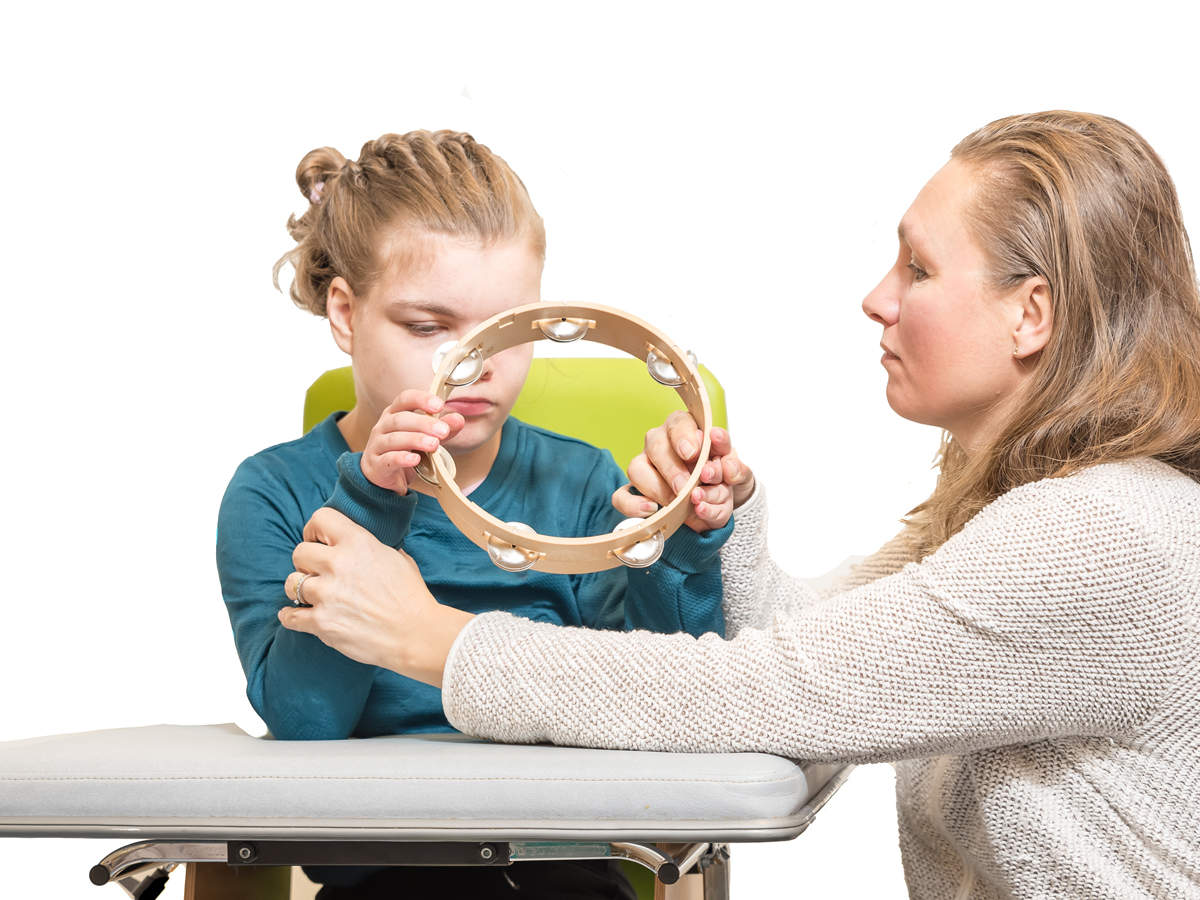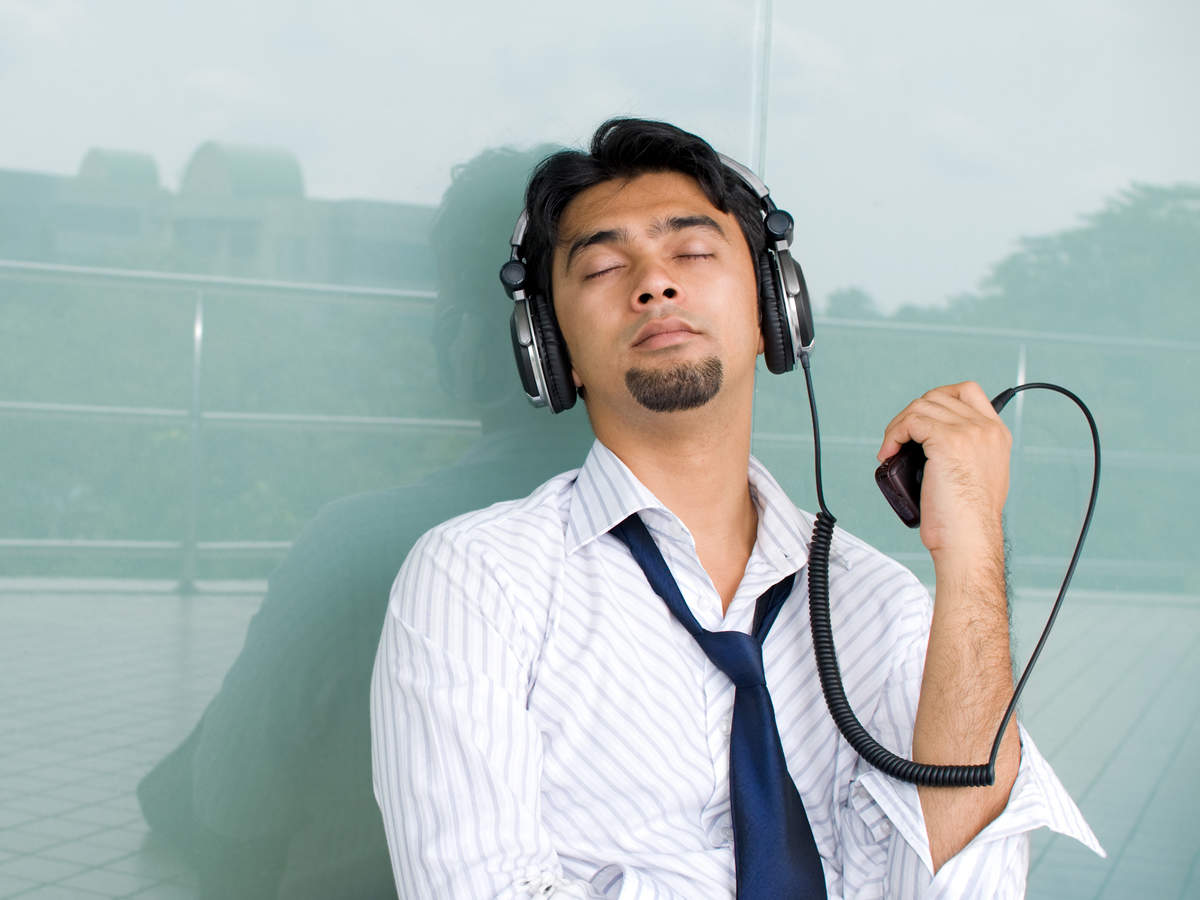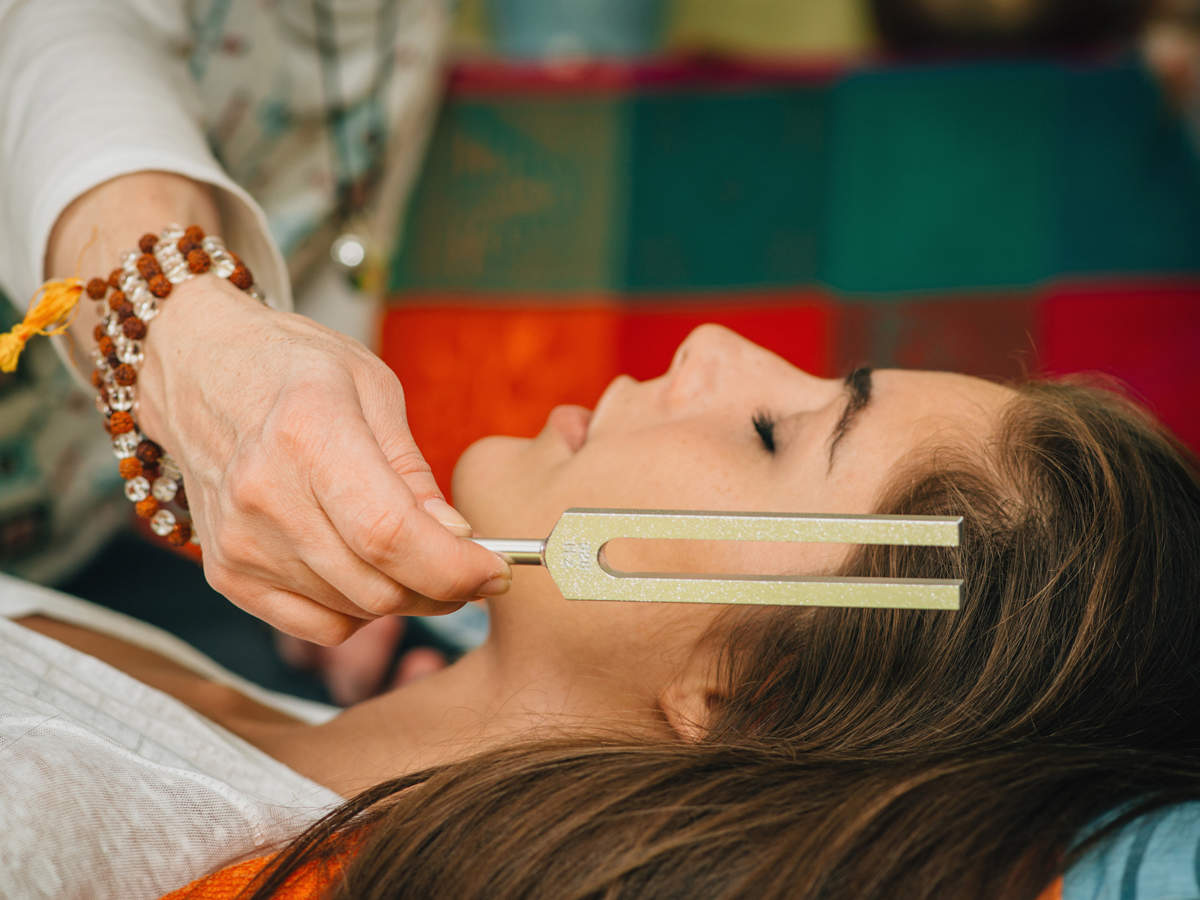From reducing stress to improving memory: Music therapy provides the perfect pitch for wellness
With music therapy, consistency, patience and practice are key.
By Rashmi Ramesh
Using the power of music to get better, both mentally and physically, and live well can pay rich dividends, writes Rashmi Ramesh
A nine-year-old, who’d never uttered a word all his life, spoke for the first time during a music session. His first word was “open”. Diagnosed with autism, the boy had been non-verbal until then. The development came as a pleasant surprise to Purvaa Sampath—currently India’s only CBMT (Certification Board for Music Therapists)-certified music therapist and neurologic music therapist who was an intern at the time.
“With that boy, my supervisor and I had developed a song where he would knock on the drum when we prompted him to. I was leading the session and began the song. When I got to the part about knocking, the song went ‘Who’s that knocking on the door?’ and instead of just knocking on the drum, he looked straight at me and said the word ‘open’. That was the first time he’d ever said a word and it was a huge moment for me, my supervisor, his teacher as well as his family. And this word came after months of music therapy,” Sampath said.
With music therapy, consistency, patience and practice are key, according to her.
Akanksha Pandey, consultant clinical psychologist at Fortis Hospital in Bengaluru, said music is an expressive therapeutic tool that helps people improve their physical and mental health — it relaxes the mind and has a functional effect on the brain.
“The therapeutic role of music has been recognised since ancient times, through texts such as Raga Chikitsa, and has the support of current research as well, which talks about the physiological benefits of music on the immune system, the benefits of music for relaxation and stress management, the application of music to improve memory and attention, as well as music-induced long term changes in the behaviour of depressed elderly people,” Pandey said.
“Music therapy, as a model, was initially designed for psychiatric patients to help them channel their pent-up and conflicting emotions. But with some modifications, it is now also used to address anxiety, sleep disturbance, and improve one’s ability to identify and communicate needs, thoughts and feelings in a productive manner,” she said.
Dr Sahil Kohli, consultant (neurology) at Gurugrambased Narayana Super Speciality Hospital, said there’s evidence that music has a calming influence on the body and mind, as it produces endorphins — natural painkillers usually produced during a happy state of mind — thus, lowering stress and anxiety, and promoting relaxation by reducing muscle tension. “Young people with anxiety issues can focus better, avoid distraction and negative thoughts, and increase productivity,” said Kohli.
Music therapy is an intersection between psychology, neuroscience and music to observe how music affects the brain and how various tools in music such as rhythm, pitch, melody and timbre can be used to address clients’ challenges, Sampath said.
Music is known to speed up recovery too. “Music therapy promotes consciousness among patients in a coma, especially after a head injury or during metabolic coma. Listening to their favourite music helps in recovering from memory lapses faster and more effectively, even among patients with early memory loss,” Kohli said.
Education VS Therapy
“The end goal of music therapy is a nonmusical one, whereas in music education, the end goal is a musical one,” said Sampath. “For example, if I’m working on playing the piano with a client who has come to me for music therapy with the challenge of fine motor skills, then my end goal for using the piano in the session is for the client to work on their fine motor skills of using their finger. However, if I were teaching someone how to play the piano, the end goal would be for them to learn and reproduce whatever we did on the piano; so the end goal here is a musical skill.”
Who is it for?
Pandey has suggested music therapy to many of her clients, especially people with anxiety disorders. “Many of them have said that it has helped them calm down. I often use music while doing relaxation training or visual imagery for anxiety, stress and anger issues,” said Pandey.
There is no age limit in terms of the benefit that one can get. “The youngest client I’ve worked with was two and the oldest 97. I’ve worked with children and adults on the autism spectrum, traumatic brain injuries, stroke, cerebral palsy, learning difficulties, intellectual and cognitive challenges, Down syndrome, Alzheimer’s, dementia, Parkinson’s and an entire range of mental health disorders, including schizophrenia, depression, personality disorders and anxiety disorders,” said Sampath.
What’s special about it?
“Music is one of the few activities that engage both the right and the left hemispheres of your brain. So when you actively participate in music by singing or playing an instrument, multiple areas of your brain are working. Our brains have the ability to create new neural pathways to relearn skills like speech, cognitive abilities and physical abilities. So music is an integral part of getting the brain to create these connections and strengthen them,” Sampath said. While music therapy has a lot of benefits, it must be stressed that it is most effective when used along with psychotherapy and/or medical treatment, Kohli added.
Ancient Panacea
An established health profession now, music therapy is a concept that was popularised in south India by Carnatic musician M Balamuralikrishna in the 1980s. But this form of therapy has roots going all the way back to 4th century BC, and that’s just in India
• Aristotle claims that in some people, the effect of religious melodies that thrill the soul resembles those who have undergone medical treatment and mental catharsis
• Thirteenth century Arab hospitals had music rooms to help with healing
• Hippocratic tradition laid emphasis on applying natural methods of healing in medical practice, and Hippocrates, the father of modern medicine, was said to have played music to treat patientswith mental health issues
• Ancient Hindus believed that suffering caused by man’s uncontrolled thinking could be handled by music therapy
• Swami Haridas, a classical musician who lived in the 16th century, was one of the many who used music to treat illnesses
• A 17th century work Sangita Sudha by Nayaka king Raghunatha Nayak and his minister Govinda Dikshitar gives an account of the effects of music on emotions
• Ancient works collected by King Sahaji (1684-1711), which have been preserved in the Thanjavur Saraswathi Mahal Library in the form of palm leaf manuscripts, serve as a record of remedial use of music in psychological ailments
• Raga Chikitsa was the original Sanskrit treatise that dealt with curative ragas with mood-enhancing characteristics
• Regular exposure to a specific raga under particular conditions has been known to have particular effects. While Nilambari raga can induce sleep, Bilahari, a joy-producing raga, helps alleviate one’s melancholic mood and Sama raga can reduce anxiety
• Apparently, some ragas are earmarked for the nine emotions or navarasas. Some ragas, claim musicians, have healing effects as these nine emotions rule our body and mind
Source: Indian Journal of Psychiatry



